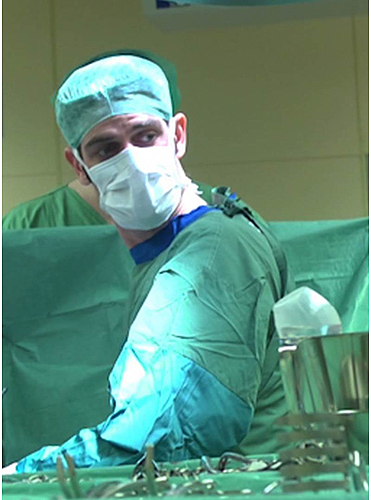The clinical study INSPIRE, a large international multi-center study led by Hannover Medical School (MHH), has shown that the storage and transport of donor lungs in the Organ Care System (OCS™) of Transmedics is safe and effective compared with the current standard procedure of storage at four degrees Celsius. Patients who received OCS organs were also less likely to experience primary graft dysfunction, a common complication of cold storage, which usually occurs within the first 72 hours post-transplant. "For the patients, this means shorter ventilation times and shorter hospital stays," says Professor Dr. med. Gregor Warnecke, senior consultant at the MHH Clinic for Cardiac, Thoracic, Transplantation and Vascular Surgery (HTTG) and principal investigator of the study. The international study involved 21 transplant centers, with the largest group of patients treated at the MHH. The results were published in "Lancet Respiratory Medicine".
Based on the results of the study, the Food and Drug Administration (FDA) granted approval to the company TransMedics, Inc. for the use of the OCS for the storage of lungs for transplant.
The OCSTMLung is a mobile device for ex vivo lung perfusion. In the device, the organ is transported at body temperature, and perfused with a blood-like solution, supplying the organ with nutrients. The system enables surgeons to ventilate the organ between the donor and recipient sites, which extends the transport window to up to twelve hours and allows the surgeons to assess and improve lung function in the donor organ prior to implantation, for example, by drying out fluid deposits and extracting mucus. "In this way, the organ reaches the recipient in a much better condition than with the usual cold storage," says Professor Warnecke. "And the operations can also be planned more easily - leading to improved patient safety." says Axel Haverich, Director of the MHH Clinic for Cardiac, Thoracic, Transplantation and Vascular Surgery. He adds: "In Germany, there has been a sharp decline in the number of organs donated. The OCS enables us to obtain donor organs from more distant European countries for implantation here in Hanover – which in the past was simply not possible."
The previous standard method for transport at four degrees Celsius left transplantation surgeons with a window of a maximum of ten hours between organ retrieval and implantation. Due to the lack of blood and nutrients, the organ deteriorates continuously, leading to primary graft dysfunction in up to 30 percent of post-transplant patients, a major cause of early morbidity and mortality.
Various aspects of the research leading to the development and clinical application of ex vivo lung perfusion were supported by the MHH's three major research groups working in Transplantation Medicine: the Cluster of Excellence REBIRTH (From Regenerative Biology to Reconstructive Therapy), the German Center for Lung Research (DZL) and the Integrated Research and Treatment Center Transplantation ( IFB-Tx).
The original publication can be found here.
Text: MHH / Presseabteilung
Picture: MHH / Junge

Prof. Dr. Gregor Warnecke, chief physician at the MHH Clinic for Cardiac, Thoracic, Transplantation and Vascular Surgery (HTTG) and principal investigator of the study INSPIRE during a lung transplantation